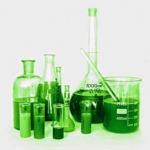-
Think Tank FYI: Agriculture 5.0 - 16/02/2023
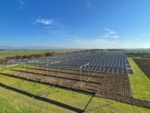
Climate protection, agriculture and biodiversity are closely intertwined. Agriculture 5.0 provides positive guidance, as the Offenburg University of Applied Sciences has demonstrated: agrophotovoltaics (or agrivoltaics), which is currently in vogue in Germany, can be used to generate solar power on high-yield fields. Biomass strips and biochar remove CO2 from the atmosphere. All this improves soil quality and promotes biodiversity.
https://www.biooekonomie-bw.de/en/articles/news/agriculture-50-fighting-climate-crisis-agrophotovoltaics-and-biochar
-
Dossier - 19/10/2022
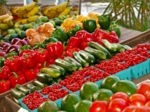
Strawberries in winter and imported apples? You can find them in most supermarkets. This is not sustainable. Looking to the future, the way we eat needs to change in many mundane ways – and this needs to happen quickly so that future generations will also be able to enjoy a planet that is worth living on. In Baden-Württemberg, alternative nutrition concepts are being worked at pace. Many creative ideas and innovative products already exist.
https://www.biooekonomie-bw.de/en/articles/dossiers/more-food-sustainability-crucial-people-and-environment
-
-
Press release - 22/02/2021
Agrivoltaics enables the dual use of arable land: Photovoltaic modules, which are mounted on a structure, generate renewable electricity and underneath agricultural crops grow. The approach increases land efficiency and could mitigate conflicts over the use of arable land in the future. A new guideline provides up-to-date information on the technology, its potential and the current state of development.
https://www.biooekonomie-bw.de/en/articles/pm/Dual-Yield-on-Arable-Land-Guideline-for-Agrivoltaics-Published
-
Development of biogenic packaging - 16/11/2020

Modern packaging often boils down to a tick list of biogenic origin and/or biodegradability. But comprehensive sustainable packaging concepts need more than just that. Perishable foods, for example, require special barrier properties. The Albstadt-Sigmaringen University of Applied Sciences is researching packaging concepts for their sustainability.
https://www.biooekonomie-bw.de/en/articles/news/sustainable-packaging-devil-detail
-
Biosensors - 09/04/2020
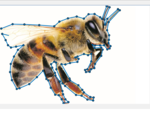
Sensor networks are one of the keys to achieving digitalisation of the bioeconomy. Sensor networks are on the way to becoming important analysis and control instruments for energy-efficient and sustainable material cycles. Dieter Hertweck, Professor of Business Information Systems at Reutlingen University of Applied Sciences, shows what is already possible in digital agriculture and waste recycling and what is feasible for the future.
https://www.biooekonomie-bw.de/en/articles/news/Sensors-for-the-bioeconomy
-
Article - 01/08/2019
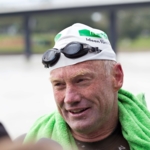
He swam the entire length of the River Rhine to draw attention to the contamination of rivers and oceans with plastic waste. After completing his mammoth swim, Prof. Dr. Andreas Fath decided to kill two birds with one stone and do something useful with microplastics. At the Furtwangen University of Applied Sciences campus in Villingen-Schwenningen, Fath is working on a filter system made of plastic waste that can be used to remove pollutants from…
https://www.biooekonomie-bw.de/en/articles/news/Clean-water-thanks-to-microplastics
-
Dossier - 15/04/2019

Plastic waste takes years to decompose and pollutes the environment. Nevertheless, plastics are an indispensable part of everyday life. It is therefore all the more important to find a meaningful alternative that is sustainable, environmentally friendly and has better properties and more functionality than conventional plastics. In addition, such an alternative should not be dependent in any way on fossil resources.
https://www.biooekonomie-bw.de/en/articles/dossiers/the-alternative-bioplastics
-
-
-
Website address: https://www.biooekonomie-bw.de/en/search







